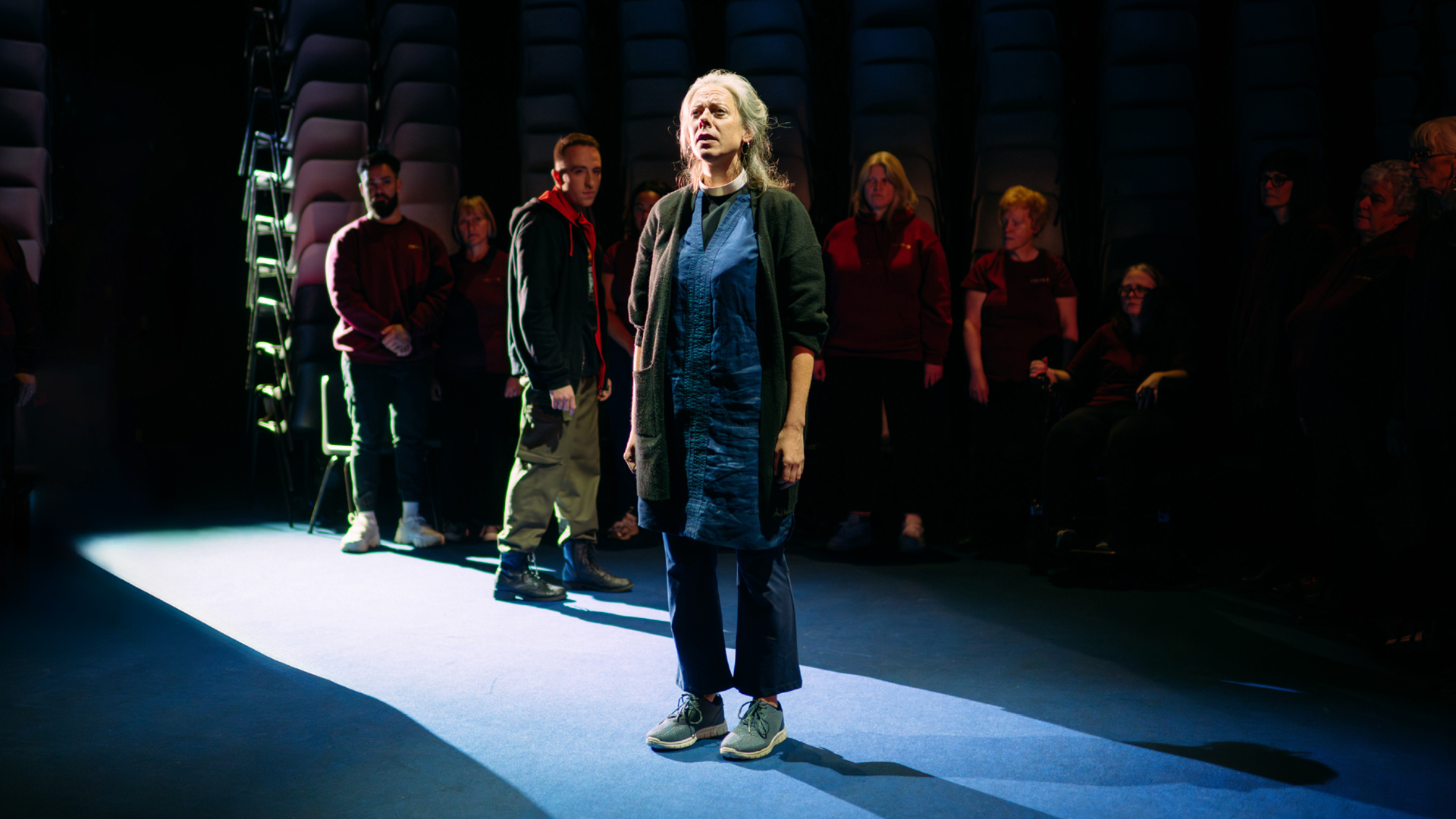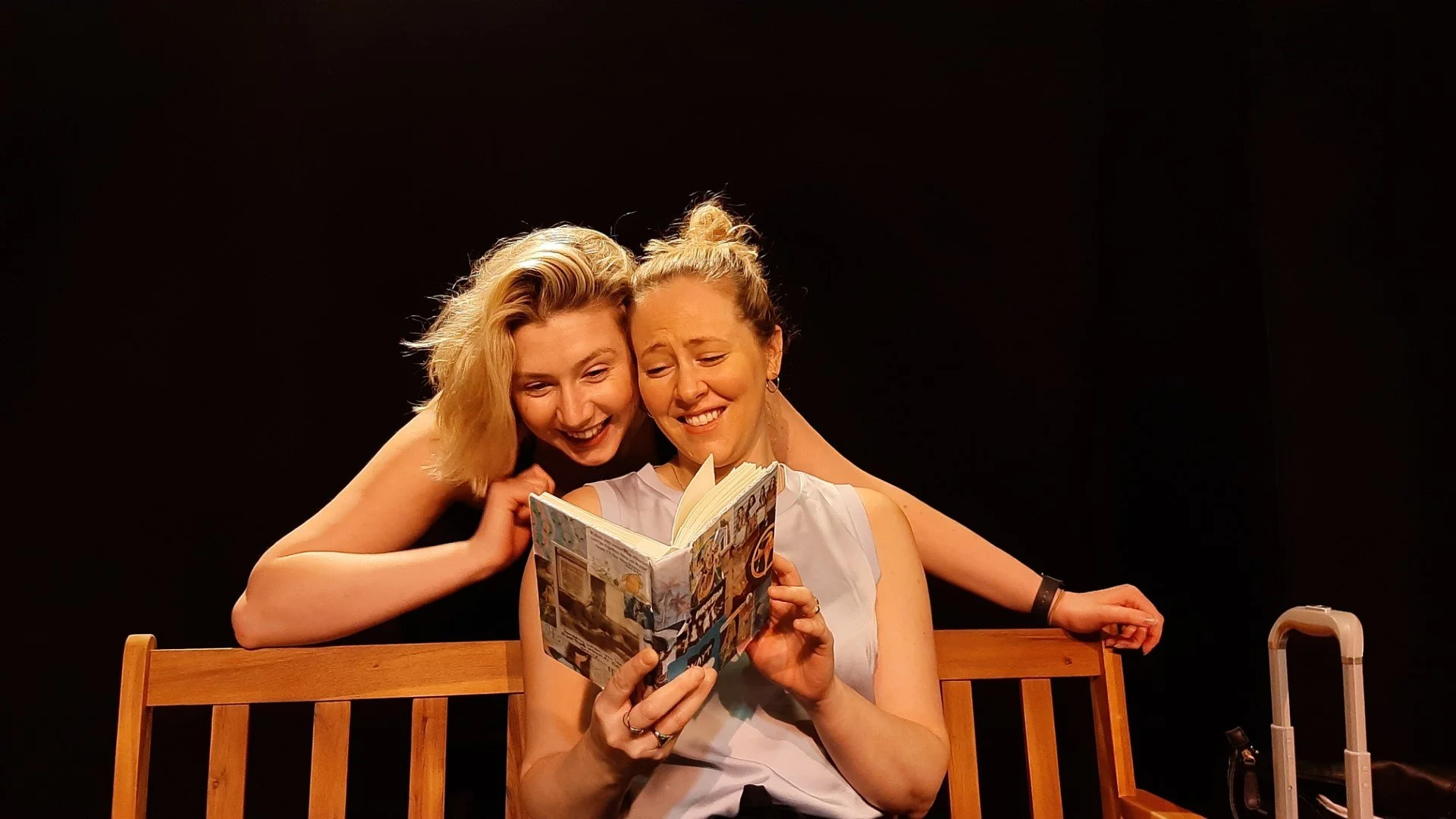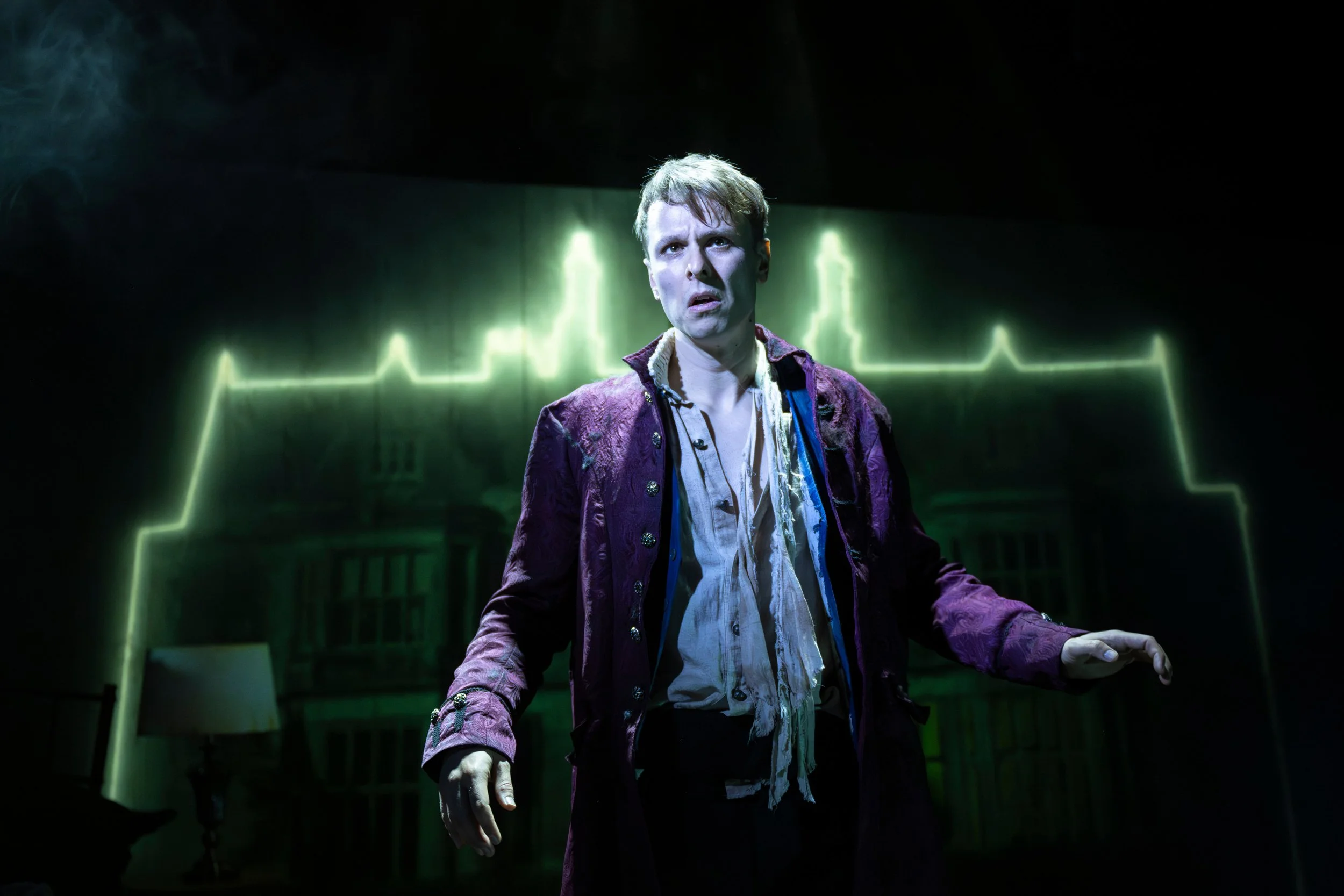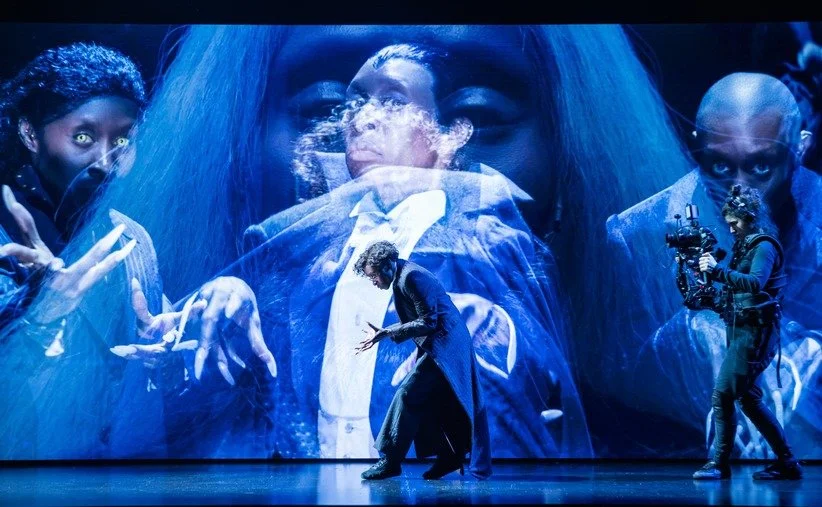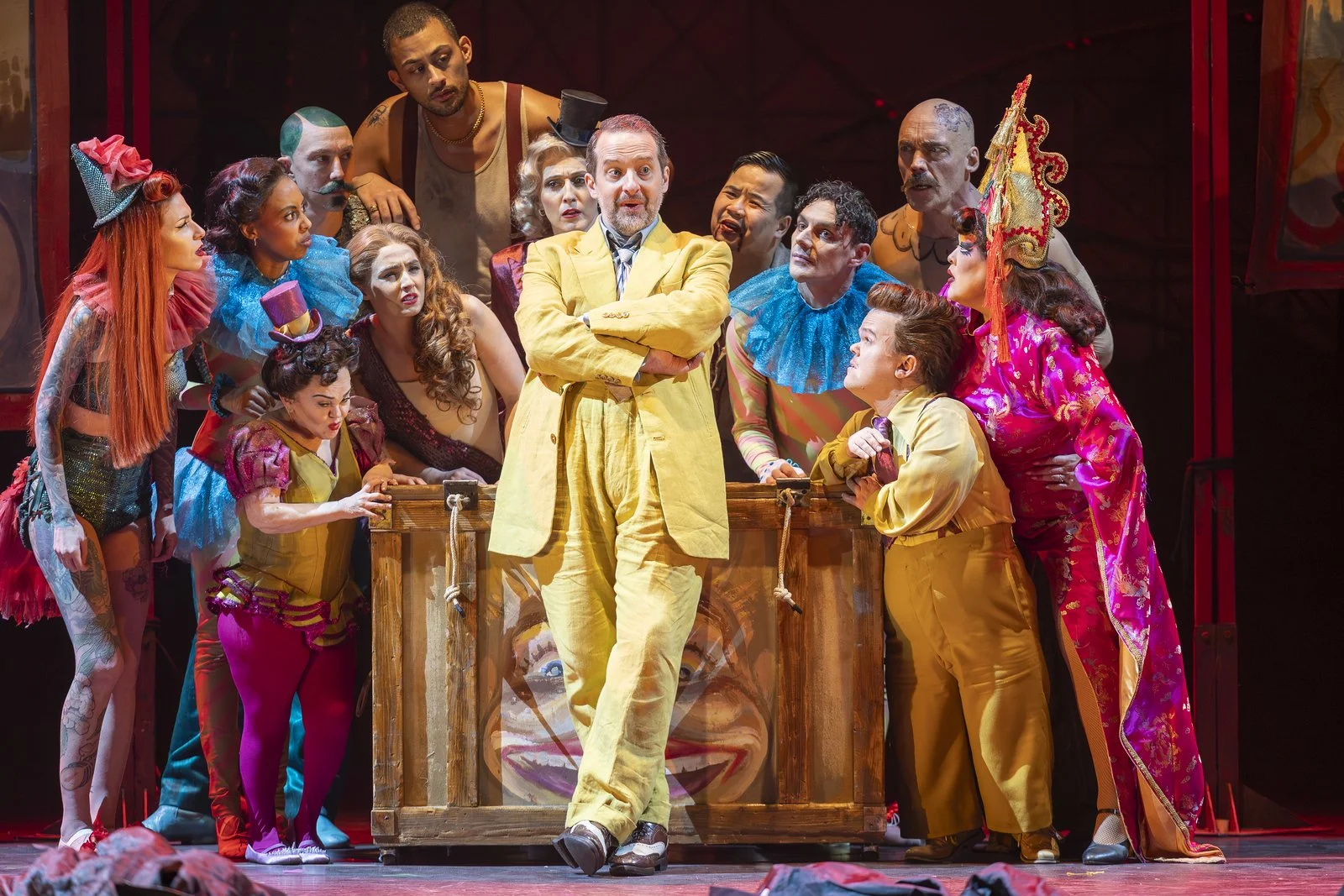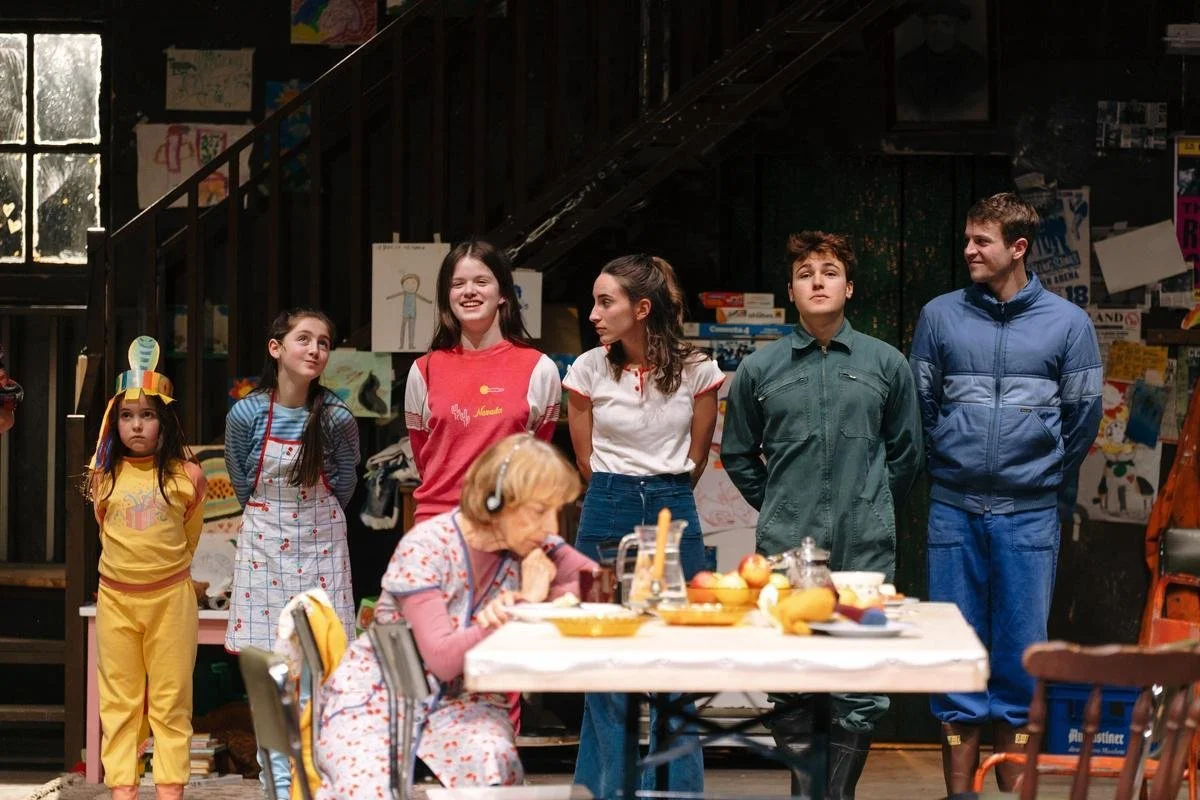Ulysses in Babel, Barons Court Theatre Review
Written by Jasmine for Theatre and Tonic.
Disclaimer: Gifted tickets in return for an honest review. All opinions are our own.
As (at last!) the Fringe transfer season begins, with Edinburgh Fringe coming to an end, the first transfer I’m seeing is Ulysses in Babel; Vivian Allvin’s one-person show exploring, in essence, how we communicate with one another from a cross-cultural perspective.
This is where Ulysses and Babel come in; Allvin uses these stories which have managed to travel with us through history as a touchstone in her exploration of such an expansive subject. How, when we read Ulysses in different languages, does his character change? Is the woman he stays with for a year Circe or Calypso? What kind of God would choose to divide us with languages?
When I put it like that it might all sound terribly weighty, but Allvin infuses every moment with playfulness and humour. She brings to life a wide range of characters - splitting from her more naturalistic tone to being a telenovela diva, or an uptight Englishman physically pained by flirting. One of the best ways this is used is in the Babel section, where she shows us, instead of the different languages on each ring of the tower, the different communication styles. Flattery or directness, embarrassment or boldness, each gets its own level, and its own character performance.
These different characters speak to her own experience of living across different cultures, and, as she jokes close to the beginning of the show, her accent shifts from situation to situation even when she isn’t in the comic characters. This is what shines out brightest in this show; Allvin’s likeable, conversational tone, and her own connection to and even affection for each subject she touches upon - whether it is types of people or moments with poetry/literature that she quotes - it is always so clear how much it all matters to her.
Perhaps the only thing she doesn’t have affection for which features heavily in this show is the class system, and who can blame her there. In fact, it builds a lot of the thread which winds up being the final thought the show is left on: how do we communicate honestly, passionately, and freely, when there are people (largely the upper class) who view amorality, or detachment, as politeness?
The most affecting part of this show is, beneath all the brilliant character moments and beautiful references, the natural, truthful, and direct moments of communication. When Allvin shares a laugh with us or asks us a question, we see the power of that truthful, unguarded, and open communication which the show seems to ultimately ask us for.
Bagnall’s direction makes space for these moments, giving Allvin a clear series of beats to take us through the quick-moving show, and the show works best when we feel Allvin really settle into each of these distinct moments. The clarity of the show’s beats also creates great support for Allvin as a solo performer, a format which can often leave actors feeling stranded or like they’re wandering onstage. Bagnall and Allvin have created a clear structure to complement the switches between her more natural style of delivery and her character moments.
This also allows you to pick off the thread of the show again if at moments you lose it - it is a wide ranging set of thoughts; each will resonate differently with each of us, but the pace of the show means that even if one thought doesn’t quite hit or resonate, you’re drawn back in by the next beat.
Ulysses in Babel feels like a developing set of thoughts, a series of ideas which is being continually distilled as Allvin’s thoughts on how we communicate with one another develop. The thread for the audience to follow to the conclusion and the moments where it connects with the idea of the British class system could be clearer, the targeting more pointed, but that will no doubt come as this ambitious show continues its journey.
At Barons Court Theatre until 31 August.
★ ★ ★


